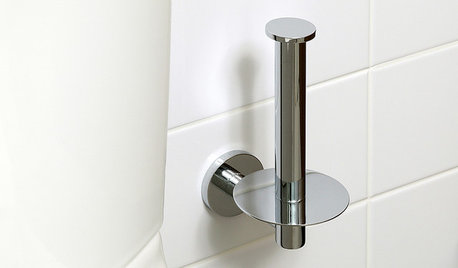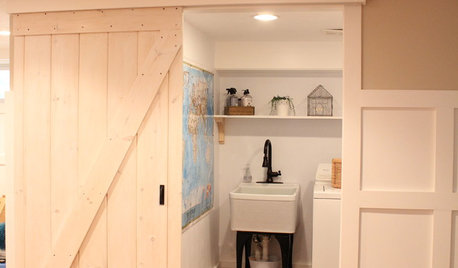Furnace 101 needed
mabeldingeldine_gw
10 years ago
Related Stories

DECORATING GUIDESDecorating 101: How to Start a Decorating Project
Before you grab that first paint chip, figure out your needs, your decorating style and what to get rid of
Full Story

LIGHTINGRecessed Lighting 101
Looking to brighten a drab, dim space? Recessed lighting may be your answer. Here's what you need to know
Full Story
KITCHEN APPLIANCESLove to Cook? You Need a Fan. Find the Right Kind for You
Don't send budget dollars up in smoke when you need new kitchen ventilation. Here are 9 top types to consider
Full Story
REMODELING GUIDESGet What You Need From the House You Have
6 ways to rethink your house and get that extra living space you need now
Full Story
FUN HOUZZ14 Things You Need to Start Doing Now for Your Spouse’s Sake
You have no idea how annoying your habits at home can be. We’re here to tell you
Full Story
ARCHITECTUREDo You Really Need That Hallway?
Get more living room by rethinking the space you devote to simply getting around the house
Full Story
HEALTHY HOMEWhat You Need to Know About Dust and How to Fight It
Breathe easier with these 10 tips for busting mites, dander and other microscopic undesirables
Full Story
DIY PROJECTSMake Your Own Barn-Style Door — in Any Size You Need
Low ceilings or odd-size doorways are no problem when you fashion a barn door from exterior siding and a closet track
Full Story
ARCHITECTUREWant to Live by the Water? What You Need to Know
Waterside homes can have amazing charm, but you'll have to weather design restrictions, codes and surveys
Full Story






tigerdunes
energy_rater_la
Related Professionals
Greenwich Solar Energy Systems · Riverside Solar Energy Systems · West Hartford Solar Energy Systems · Richfield Solar Energy Systems · Irvington Solar Energy Systems · Bedford Home Automation & Home Media · Castle Rock Home Automation & Home Media · Goulds Home Automation & Home Media · Kissimmee Home Automation & Home Media · Laguna Hills Home Automation & Home Media · Ponte Vedra Beach Home Automation & Home Media · Safety Harbor Home Automation & Home Media · Burlingame Electricians · Canton Fireplaces · Norridge Fireplacesmabeldingeldine_gwOriginal Author
tigerdunes
mabeldingeldine_gwOriginal Author
tigerdunes
mabeldingeldine_gwOriginal Author
tigerdunes
SaltiDawg
tigerdunes
SaltiDawg
mabeldingeldine_gwOriginal Author
tigerdunes
ionized_gw
mike_home
Bruce in Northern Virginia
mabeldingeldine_gwOriginal Author